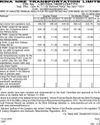
If you've ever gone to look up a quick fact and just kept browsing from one article (or page, or video), to another, to another—then you know the feeling of "going down a rabbit hole". This experience of curiosity-led online wandering has become synonymous with the free, user-created encyclopedia Wikipedia. Founded in 2001, Wikipedia is today one of the world's most popular websites. With more users than Amazon, Netflix, TikTok, or ChatGPT, the site is a go-to source for people to learn about and discover new interests.
In new research involving more than 480,000 Wikipedia users in 14 languages across 50 countries, US researchers led by Dale Zhou at the University of Pennsylvania studied three distinctly different ways of going down the Wikipedia rabbit hole. These "curiosity styles" have been studied before, but not in such a large, diverse group of people using Wikipedia "naturalistically", in daily life. The research may help us better understand the nature and importance of curiosity, its connections to wellbeing, and strategies for preventing the spread of false information.
Wikipedia: first controversial, now mature, always popular When Wikipedia was new in the early 2000s, it sparked controversies. People such as librarians and lecturers voiced concerns about Wikipedia's potential for platforming untrue or incomplete information.
Today, the factuality of Wikipedia's existing contents is less concerning than questions of bias, such as which topics the site's volunteer editors deem noteworthy enough to include. There are global efforts to fill gaps in Wikipedia's coverage, such as "edit-a-thons" to add entries on historically overlooked scientists and artists.
Esta historia es de la edición November 10, 2024 de The Morning Standard.
Comience su prueba gratuita de Magzter GOLD de 7 días para acceder a miles de historias premium seleccionadas y a más de 9,000 revistas y periódicos.
Ya eres suscriptor ? Conectar
Esta historia es de la edición November 10, 2024 de The Morning Standard.
Comience su prueba gratuita de Magzter GOLD de 7 días para acceder a miles de historias premium seleccionadas y a más de 9,000 revistas y periódicos.
Ya eres suscriptor? Conectar
NCRTC to begin Namo Bharat corridor soon
THE National Capital Region Transport Corporation (NCRTC) is set to initiate the construction of another Namo Bharat corridor linking Delhi to Panipat.
Coffee With Bureaucrat
To make govt offices more accessible and swiftly resolve issues, a Jharkhand officer floats a new initiative, says Mukesh Ranjan
Décor Drama
Lifestyle brands Nicobar and The Singleton Social come together to launch a new collection of elegant home décor items

MCD Revises Enforcement Rates for Composition, Removal, Storage Charges
The Municipal Corporation of Delhi (MCD) has announced revised enforcement rates of composition fees, removal charges and storage charges, superseding its previous circular dated July 19, 2023.
EAM, Ukraine foreign minister talk bilateral ties
DURING a meeting with External Affairs Minister S Jaishankar on the sidelines of the Munich Security Conference (MSC) in Germany, Ukrainian Foreign Minister Andrii Sybiha urged India's support in achieving a lasting peace in the ongoing conflict with Russia.
Disclosure rules on related-party transaction
MARKETS regulator Sebi on Saturday introduced industry standards for the minimum information that listed entities are required to provide to the audit committee and shareholders when seeking approval for related-party transactions.
The Kumbh of Digital Spirituality
As the Kumbh Mela draws to a close this year, everyone is experiencing FOMO (fear of missing out), fueled by influencers covering the event. I, too, appeared on a podcast to talk about the spiritual significance

Cops to file chargesheet in MCOCA case against gangster Nandu's aides by Feb 24
THE Delhi Police on Saturday informed the Rouse Avenue Court that a chargesheet against two accused in an MCOCA case linked to notorious gangster Kapil Sangwan alias Nandu will be filed by Feb 24.

Blow to AAP as 3 councillors join BJP
With the defection coming ahead of MCD mayor poll, AAP's strength has now reduced from 121 to 115
NSUI writes to JMI VC over students' suspension
AMID the row over the suspension of more than 15 students from Jamia Millia Islamia (JMI) University, National Students' Union of India (NSUI) president Varun Choudhary on Saturday wrote to the vice chancellor, Prof Mazhar Asif, condemning the action.